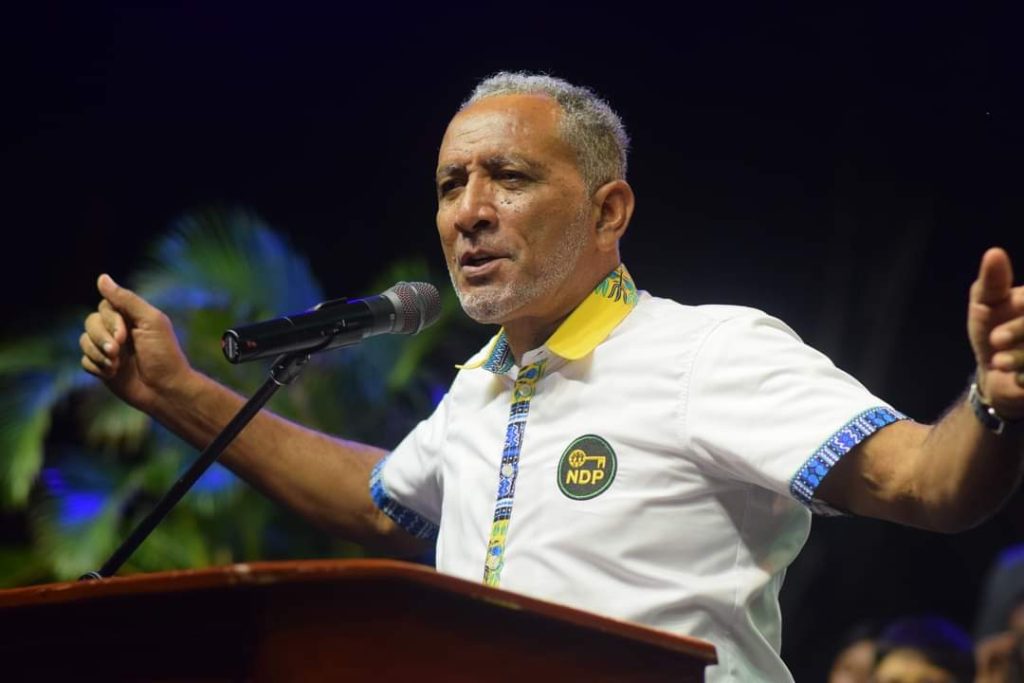(Excerpts of the Leader of the Opposition, Honourable Dr. Godwin Friday’s, Press Statement)
A few days ago, the Minister of Education, Mr. Curtis King, in a stunning admission stated that the education system has failed to address the current needs of students and the Vincentian economy; that it was fundamentally on the wrong course that was inherited from colonial times and necessary corrections must be made.
After two decades in government, you have now come to the realization at this point. Here is a quote from the Searchlight newspaper dated Tuesday 19th September 2023, of the Minister of Education making the acknowledgement. He says, “And what we need today is to recognize the new society that we are now living in, and accept that the education system which was basically formulated to deal with a past society, the old society, it is no longer, let us say, totally relevant to the developmental needs that we have identified that would transform our society and enhance persons’ living standard.”
He went on to say, “And all basically have come to the conclusion that the education system as we have it, especially in the English speaking Caribbean, is too much based on the traditional grammar school model that was utilized in England, with a heavy emphasis on academic training and there is in fact a weakness where skills are concerned.”
This is a matter that has been ventilated publicly. The Shadow Minister of Education, Honourable Terrance Ollivierre, has spoken about it many times. I also in an address to the nation last year on education spoke about it.
The headline of the article that I read says, “Urgent changes needed to SVG education system—Minister”. From the pronouncements that were made on the radio, there was no acknowledgement of what needed to be done. So where is the urgency? The minister said change must come but did not indicate how and exactly where. What was the point of his public observation and admission if not to show where the system needs to go and indicate how to get there?
In my National Address on Education delivered last year, I had much to say about the misplaced focus of the curriculum and in particular the neglect of Technical and Vocational Education Training (TVET).
For too long our education system has focused on traditional academic programs that culminate with CSEC, CAPE and a university degree. Our schools should be equipped to provide and assess persons in the skills and technical aptitudes that are needed for jobs and economic development. The Caribbean Vocational Qualification (CVQ) is part of the process towards achieving a cadre of certified skilled workers promoted by the CARICOM Single Market and Economy (CSME). Though this CARICOM initiative was established in 2007, it was only in 2016 –almost a decade later–that St. Vincent and the Grenadines was granted approval to offer Caribbean Vocational Qualification (CVQ). But while other CARICOM territories are offering CVQ’s at levels 1 & 2 with much success in many areas at the secondary school level, St. Vincent and the Grenadines has in effect been offering limited skills training to limited numbers of out-of-school youths.
Indeed, St. Vincent and the Grenadines has been left behind our regional counterparts because the necessary instruments to facilitate implementation at the secondary level are not in place. Our students have been, and continue to be, left behind in technical and vocational education. So, we see why after two decades in power, Prime Minister Gonsalves would lament some months ago that there are not enough skilled tradespersons to take up jobs in our construction industry and now, his Minister of Education could lament likewise that the education system is misguided in its current focus on traditional academics and not relative lack of emphasis on TVET.
In my national address last year, I called for several urgent changes. My remarks then bear restating here, as they are relevant to provide a good starting point for serious discussion and progress. Among other things, I said that it is critically important that the following strategies be implemented immediately:
Ensure that technical and vocational education is well-integrated within the education system so that every student has the opportunity for a comprehensive education. To earn CVQ certification, candidates must demonstrate competence in reaching CARICOM-approved occupational standards developed by industry experts and employers in a range from levels one to five.
Ensure competency-based curricula linked to the CVQ framework to be established in all secondary schools and other suitable settings in the workplace and the wider community.
Establish a qualification framework that enables learners to move seamlessly between academic and vocational qualifications in formal and informal educational settings. This would include apprenticeships for on-the-job.
Revamp and expand the YES programme to provide opportunity for on-the-job training in public and private sectors, while earning a living wage paid partly by government and partly by private employers;
Increasing opportunities for upskilling and lifelong learning through vigorous and well-managed Continuing Education programs.
We need to be bold and go much further with TVET, and I will say more about that at another time, but soon. In addition to TVET, we must teach agriculture in all primary and secondary schools. Further, to develop the whole person and promote our culture, Art, Music, Dance and other forms of cultural expression must be regarded not merely as options, but as essential components of a modern education. So, they must be taught at all levels and in all schools. I look forward to engaging in an honest, far-ranging national conversation about these changes we must make. It is a conversation in which we must all take part.

